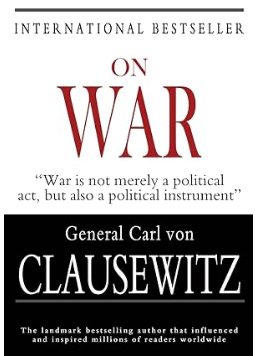This week, I decided to start a review of the things that caught my attention over the past week and that I think are worth sharing with you.
The plan is to make this a weekly or biweekly feature (still to be defined).
Some of these may resonate with you as well.
A few of the items I share here may later evolve into full posts.
Currently reading:
1- Ethics by Benedict de Spinoza:
A profoundly beautiful and uniquely insightful description of the universe, Benedict de Spinoza's Ethics is one of the masterpieces of Enlightenment-era philosophy.
Published shortly after his death, the Ethics is undoubtedly Spinoza's greatest work - an elegant, fully cohesive cosmology derived from first principles, providing a coherent picture of reality, and a guide to the meaning of an ethical life. Following a logical step-by-step format, it defines in turn the nature of God, the mind, the emotions, human bondage to the emotions, and the power of understanding - moving from a consideration of the eternal, to speculate upon humanity's place in the natural order, the nature of freedom and the path to attainable happiness. A powerful work of elegant simplicity, the Ethics is a brilliantly insightful consideration of the possibility of redemption through intense thought and philosophical reflection. The Ethics is presented in the standard translation of the work by Edwin Curley. This edition also includes an introduction by Stuart Hampshire, outlining Spinoza's philosophy and placing it in context.
2- On War by Carl von Clausewitz:
Clausewitz had many aphorisms, of which the most famous is, "War is not merely a political act, but also a political instrument, a continuation of political relations, a carrying out of the same by other means," a working definition of war which has won wide acceptance.
Podcasts that I found interesting
1- Reed Hastings - Building Netflix
2- The future of intelligence with Demis Hassabis
3- The arrival of AGI with Shane Legg
4- 10 yeats of Acquired (with Michael Lewis)
5- Sin noticias de Gurb
6 - Joan of Arc - Warrior Maid
7- Wagner: Live at the Royal Albert Hall
8- How to make a few more billion dollars: Brad Jacobs
9- Film club: our sci-fi favourites - https://ift.tt/048IMtE
10- Unfinished business (part 1): quantum physics turns 100
https://ift.tt/tlax9rk
11- Unfinished business (part 2): fixing the “biggest problem” in physics
https://ift.tt/CmBZeSE
12- A conversation with Binyamin Netanyahu
https://ift.tt/HPBmhkQ
13- The technologies to watch in 2026
https://ift.tt/K2HUN5u
14- How is AI changing warfare?
https://ift.tt/Luvfd0n
Articles that I found interesting
1- Your Analytics team is dead man walking
2- Highest-Paid Athletes in the World: Comparing Salary/Winnings with Endorsements
Videos that I found interesting
1- Panel Data Regression Tutorial
2- Chimamanda Ngozi Adichie, escritora. Desde África con amor
3- HPI 25: ‘Context is King’ When Interpreting Premier League Match Demands - Dr. Paul Bradley
https://ift.tt/O5ID9Mm
Movies videos that I found interesting
1- The Amateur
That’s it for this week. If any of these caught your attention—or if you’ve come across something worth sharing—feel free to reply or leave a comment.
from Risk Premium https://ift.tt/DCVjuyO
via IFTTT


